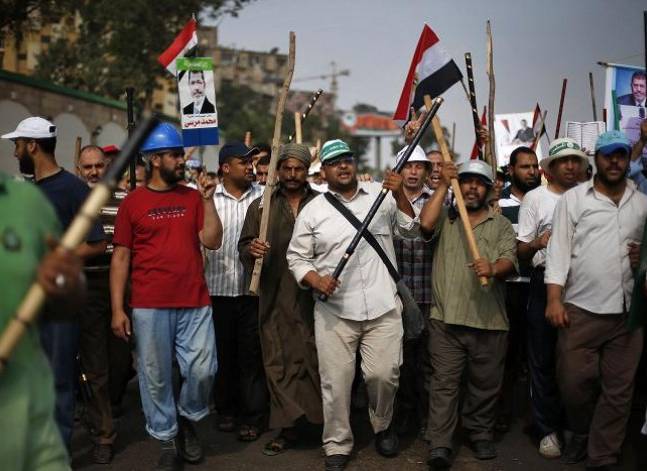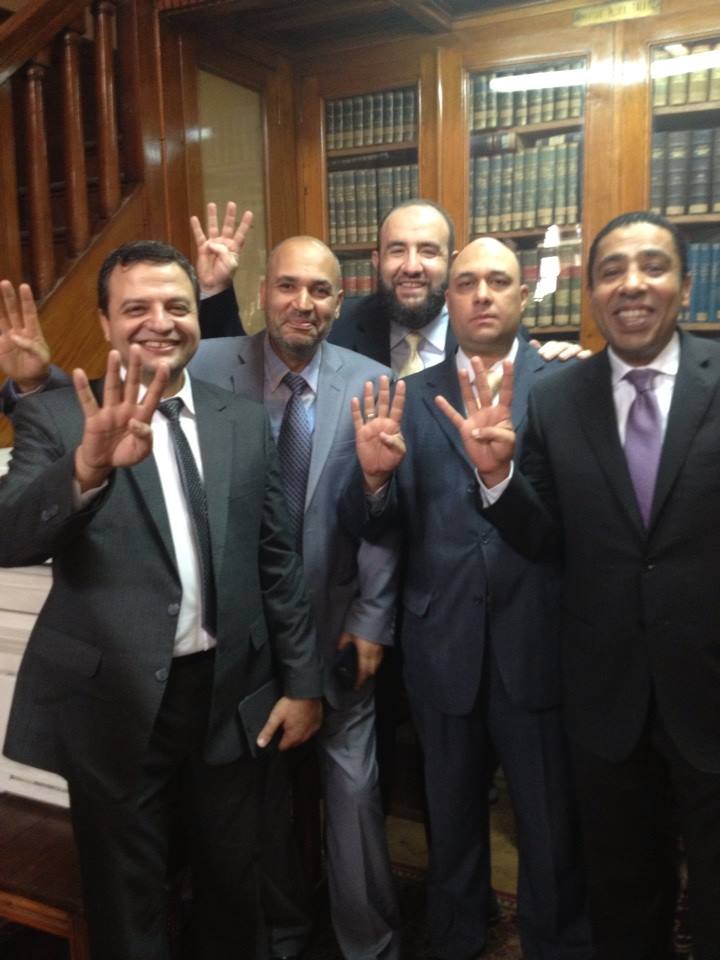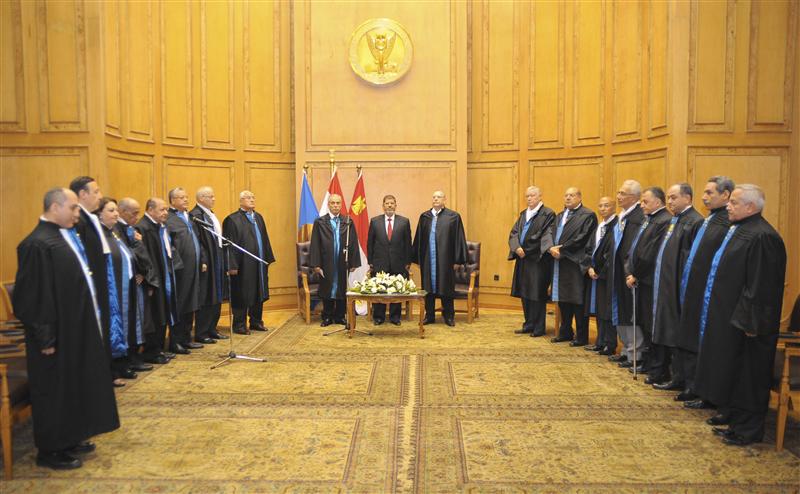Latest NEWS
- Aswat Masriya, the last word
- Roundup of Egypt's press headlines on March 15, 2017
- Roundup of Egypt's press headlines on March 14, 2017
- Former Egyptian President Hosni Mubarak to be released: lawyer
- Roundup of Egypt's press headlines on March 13, 2017
- Egypt's capital set to grow by half a million in 2017
- Egypt's wheat reserves to double with start of harvest -supply min
- Roundup of Egypt's press headlines on March 12, 2017
Fifteen Egyptian judges dismissed for engaging in 'political activity'
CAIRO, Mar 21 (Aswat Masriya) – A disciplinary board of judges decided Monday to dismiss 15 judges on charges of engaging in political activity due to their belonging to the "Judges for Egypt" movement.
The disciplinary board also rejected the appeals submitted by the 15 judges against the first-degree decision to adopt disciplinary measures against them.
The decision is final and is not subject to further appeal.
The judges are accused of founding and belonging to the "Judges for Egypt" movement, which was formed in support of the former Islamist president Mohamed Mursi. The group originally came into being when it released a public statement announcing the victory of Mursi ahead of the official results of the presidential elections in 2012.
Mursi, who hails from the now-banned Muslim Brotherhood group, was militarily ousted on Jul. 3, 2013 following mass protests against his rule.
Just after Mursi's ouster, the movement said in a statement that it recognises Mursi as the sole legitimate president of Egypt and that it will partake in an encampment in Cairo's Rabaa Al-Adaweya Square to show support for him.
The protest encampment in Rabaa al-Adaweya square was maintained for weeks before it was violently dispersed in August 2013.
Members of Egypt's Judges Club had filed a complaint then with the Public Prosecutor against the judges who had signed the statement, which one of them read out loud during the famous Rabaa al-Adaweya sit-in.
In March 2015, the disciplinary board forced 41 of the judges into retirement for charges related to publicly siding with a political faction, in reference to their opposition to Mursi’s ouster.
The move was condemned by twelve rights groups, including Egyptian Initiative for Personal Rights and the Cairo Institute for Human Rights Studies, considered the forced retirement a message for judges to "withhold their opinions except when expressing approval of the current political administration".
The rights groups maintained that judges declaring their opinion on political matters was not new, and gave precedents of such statements in the context of the January 2011 uprising and the mass protests of June 30.
The state argues that these judges violated article 73 of the judiciary law which defines political involvement as running for office in "parliamentary bodies, regional bodies or political organisations," the rights groups said.
The law stipulates that judges referred to disciplinary courts continue to carry out their work normally until the Supreme Judicial Council approves of their dismissal.















